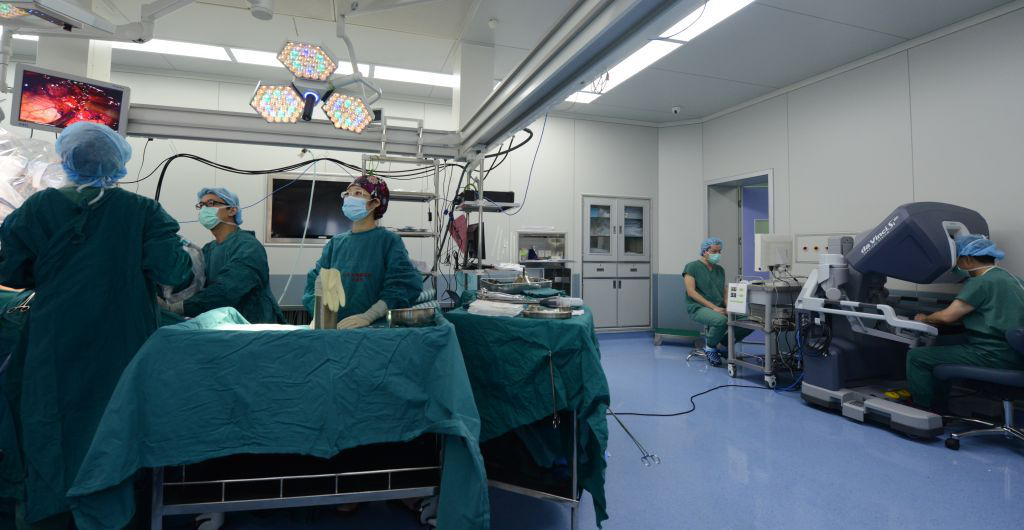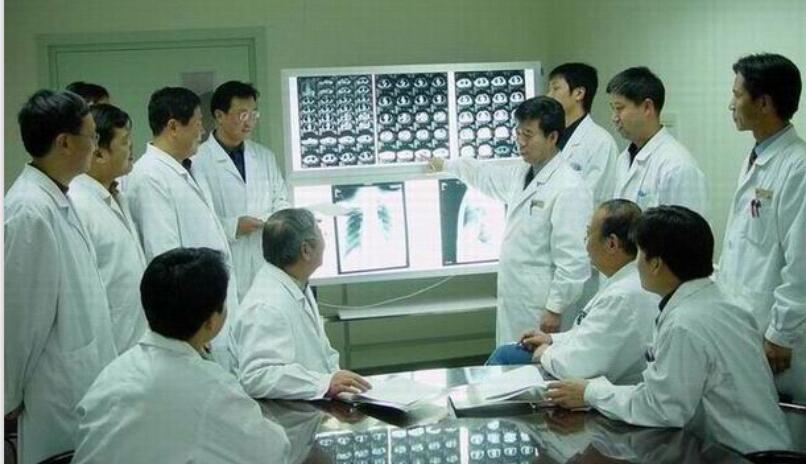The Department of Lung Cancer was officially founded in Nov 1999, developed from former Department of Thoracic Surgery, which went back to 1971, and divided into Lung Cancer and Esophageal Carcinoma departments. The Department of Lung Cancer was named National Key Specialty in the year of 2011. The department is now facilitated with 136 beds, staffed with 29 surgeons and 48 RNs, with a record of over 50000 out-patients interviews, about 6000 discharges and 3000 surgeries every year.

A comprehensive protocol of the diagnosis of lung cancer was established, which included head CT/MRI; bone ECT; cervical and abdominal BUS in routine preoperative exams and PET-CT for selected patients from 2000 for the completion of preoperative assessment. In addition, the mediastinoscopy or EBUS was adopted to achieve an accurate staging for advanced cases together with pathological diagnosis. The test of driving gene for Lung Cancers was commenced in the department from 2006 with over 90% resected cases enrolled. Conforming to the protocol of Lung Cancer Surgery, the department included systemic lymph nodes sampling/dissection as a standard procedure from the beginning of surgical practice, which ensured a precise postoperative staging therefore improved the prognosis of resected lung cancers. The department also performed complicated surgeries: resection/reconstruction of carina, dual sleeve lobectomy, vascular prosthesis replacement, radical resection for superior sulcus tumor, in a considerable population. The majority (over 80%) of surgeries are VATS, with about 800 cases per year, including lobectomy, segmentectomy, sleeve lobectomy, (extended) thymusectomy and uni (dual) portal surgeries. The department initiated Robotic Assisted VATS from 2016 as a part of the minimally invasive procedures.
The non-local patients account for half of the populations, which come from various provinces of north China. The department acts as an institute and training center for non-local practitioners, by which the concept of comprehensive diagnosis and treatment of lung cancer is preached.

Key technologies and advantages
1. Molecular diagnosis and treatment: the test of driving genes for Lung Cancers such as EGFR, K-Ras and ALK and the individualized molecular treatment as the postoperative adjuvant therapy.
2. Pathological diagnosis and accurate staging: the mediastinoscopy or EBUS as the basis of treatment.
3. Re-assessed pattern of systemic lymph nodes sampling/dissection as a standard procedure: ensured a precise postoperative staging and improved the prognosis.
4. Individualized adjuvant therapy: based on the result of the test of driving genes.
Research and education
1. Over 70 sci-indexed articles as first author; 12 national nature and science projects; 6 provincial projects; awarded 1 municipal pioneer project and 1 pioneer project of CACA.
2. Participated in 15 multicenter domestic clinical trials; founded the laboratory of Tianjin Lung Cancer Center in 2012, in which 5 clinical translational researches are ongoing; recruited 10 doctoral candidates and 30 postgraduates.

